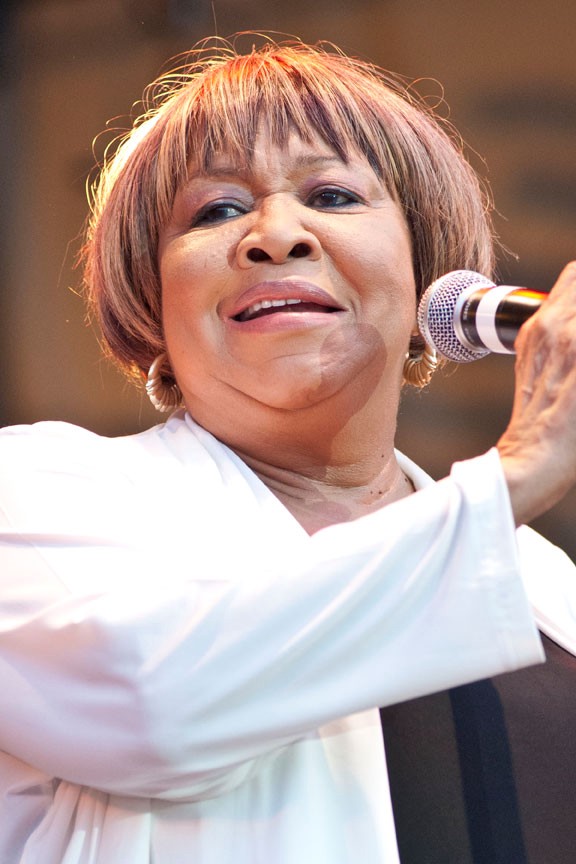And What It?s Saying To Today?s Artists
 Courtesy Flickr User Kayla Johnson
Courtesy Flickr User Kayla Johnson
It?s not the waking, it?s the rising.
When I first saw the title of Hozier?s new song, ?Nina Cried Power,? I didn?t know ? or really even wonder ? who Nina could be. But once I heard those opening lyrics, oh, I knew.
Nina Simone. Of course. My face lit up. She shook the 1960?s Civil Rights Movement with speeches at the Selma and Montgomery marches. She wrote songs like ?Mississippi Goddam? and ?Backlash Blues? addressing racial inequality in the United States.
And she wasn?t the only one. B.B King. Woody Guthrie. Mavis Staples. The Civil Rights Movement was defined by its music, and the music was defined by the movement. From picket lines to jail cells, protesters who sang together stayed together. And there was no shortage of songs to sing ? many of them, famously ?We Shall Overcome,? were written for the main purpose of being distributed to activists who would use them at meetings and rallies.
While it may not change people?s minds, music helps bring cohesion to a movement and awareness to a cause. It gives hardworking activists levity and inspiration. It offers a rallying cry. It helps educate people young and old. Inspiration, a central message to present to the public, educational tools ? social movements need all these things to thrive. The music matters. Protest songs matter.
I wrote a journalistic piece on this about one year after the 2016 US election, if you?re curious for more content on musical activism.
It?s not the song, it is the singing.
Hozier, the Irish-born, indie-folk singer who came to fame with ?Take Me to Church? in 2014, honors the legacy of musicians and activists with the remarkable ?Nina Cried Power.? The song name-drops nearly a dozen activists ? notably (Pete) Seeger, James Brown, and (John) Lennon ? who fought for something through music, whether it was clean water, equality, or peace. Hozier calls attention to the impact of these musicians who not only wrote great songs, but spoke out when necessary.

The lyrics highlight all the ways music is a force to be reckoned with when we put actions to words ? the song opens: It?s not the waking, it?s the rising/It is the grounding of a foot uncompromising/It?s not forgoing of the lie/It?s not the opening of eyes/It?s not the waking, it?s the rising.
?Nina Cried Power? also guides us into a new era. It?s not just a salute to activists, it?s a protest song itself. While it doesn?t protest anything specific, it could be interpreted as protesting public apathy toward major changes in our political and social spheres. With all his heart and tact, Hozier aims to mobilize people to action.
He brings in legendary Civil Rights musician and activist Mavis Staples to join him on the song. The impassioned interplay between these two powerhouse singers is nothing short of inspiring. By invoking the likes of African American women like Simone and Staples, Hozier gives this song so much weight and importance. He also bridges past and present with the ?Nina Cried Power? music video. It features Irish activists listening to the song for the first time, and it?s quite moving. Hozier has released information about all of those activists on his website. He also performed at the recent #Stand4Truth demonstrations, protesting the Catholic church in solidarity with sexual assault survivors.
The music video for ?Nina Cried Power?
It is the grounding of a foot uncompromising.
It?s no secret that another major wave of advocacy is upon us. By calling this a protest song, by honoring activism, by taking a stand and asserting what he believes in (he did this with his gut-wrenching Take Me to Church music video, too), Hozier is making his music mean something. More than just haphazardly releasing a political song, he?s providing context and conversation surrounding it.
We need more songs like ?Nina Cried Power.? We need more collaborations with people like Mavis Staples. In a recent interview, Hozier said, ?Music is political no matter what. If something concerns the experience of people, it concerns some political dimension.? More artists should own up to this! Will all musicians be activists? No. But if you have something ? anything you believe in, then as an artist, it?s certainly time to speak up.
Because when musicians, or artists of any kind, take their talent to work like this, it can shake the world. Rallying people together at a march. Framing the message so people understand. Building unity within communities. Art does all of that when you let it.
If you are an artist of any sort, this song is for you. ?I could cry power,? Hozier wails, and you could, too.
Hozier and Mavis Staples discuss ?Nina Cried Power?


